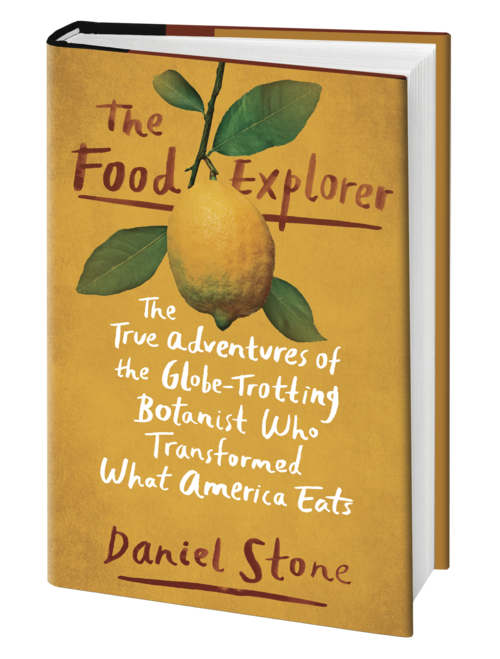 Earlier this year I stopped in for a book signing in Davis, CA at the Avid Reader bookstore. Daniel Stone was talking about his new book, The Food Explorer: The True Adventures of the Globe-Trotting Botanist Who Transformed What America Eats. It was quite insightful to see Daniel Stone in Davis, returning to the town he spent his youth in. His friends as well as his former farm employer were in attendance. It was evident from the audience and his subject matter that his exposure to farming had a profound effect on him. Writing a book about the man who significantly changed United States agriculture was a natural for Daniel.
Earlier this year I stopped in for a book signing in Davis, CA at the Avid Reader bookstore. Daniel Stone was talking about his new book, The Food Explorer: The True Adventures of the Globe-Trotting Botanist Who Transformed What America Eats. It was quite insightful to see Daniel Stone in Davis, returning to the town he spent his youth in. His friends as well as his former farm employer were in attendance. It was evident from the audience and his subject matter that his exposure to farming had a profound effect on him. Writing a book about the man who significantly changed United States agriculture was a natural for Daniel.
The Food Explorer is the story of David Fairchild, the botanist who brought new plants to the US for commercial propagation. These introduced plants number over 200,000 and include the Meyer lemon, avocados, mangos, hops, vinifera grapes and many types of melons. Additionally, some of our most cherished plants were introduced by Mr. Fairchild. The flowering cherry trees that are celebrated in our nation's capital were a treasured, and politically charged, find of this botanist. He also helped build and improve many of our commercial crops such as cotton, bringing improved strains of it from Egypt.
This book does a great job of chronicling how David Fairchild became the nation's most important food explorer. Daniel Stone tells how Fairchild stumbled into plant collection, found his footing in discovering plants, rooted new plants on our soil, and became a pillar of agriculture in Washington DC. The story includes Fairchild's lucky meeting of a San Francisco bon vivant, Barbour Lathrop. Mr. Lathrop took Fairchild under his wing and along on his worldwide explorations, all while financing Fairchild's work.
Daniel Stone also tells about the inner workings of agricultural government agencies and the real problems the farmers of the late 1800's and early 1900's faced. When Fairchild began his explorations, the US Department of Agriculture was a small agency. While Fairchild's discoveries were growing, so was the size of the Dept of Ag, with the staff and offices exploding over the course of just a few years. Farmers had been struggling with scant profits on their crops. As Fairchild's discoveries took root here, so did isolationist views, and fears of introduced disease and pests. This book puts that in great perspective, through the view of a plant scientist.
Many areas of the US have been directly changed by David Fairchild's plant discoveries and propagation. Florida and California were perfect climates to grow tropical and warm-weather plants that would have withered anywhere else. His introduction of new varieties of grapes led to the success of the wine industry and the acres of beautiful vineyards we have today. With his introductions, and successful farming, whole populations of American have been established in new US regions.
Through his travels and success in plant introduction, David Fairchild was recognized as the most traveled man in the United States. This gave him a great measure of celebrity. He was invited to speak to influential groups and to publish his stories in National Geographic and other publications. He met President Theodore Roosevelt, married Alexander Graham Bell's daughter, and was friends with Orville Wright, to mention a few.
Going to the book signing in Davis was fun for me. When I attended UC Davis, I was one of the last graduates with a degree in botany. Now botany has been renamed plant biology. The average person doesn't know the impact botanists have had on the world around us. Historically, botanists were included on explorations, asked to settle new colonies and worked to strengthen local environments with plants and their produce. Having traveled around the world, I have always stopped in the botanical gardens to find out the discoveries and important plants in any country. So, to read about the exploits and struggles that an early American botanist faced really brought all of my education and experience into perspective.
No comments:
Post a Comment